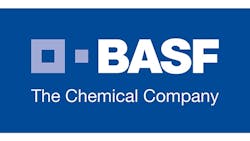BASF SE (IW 1000/39) faces a prolonged shut-down at its biggest chemical site on the banks of the Rhine River in Germany following an explosion and fire that has left two dead and two still missing.
The two steam crackers on the site, the starting point for producing basic chemicals that go into insulation materials and solvents, have been halted and about 20 other plants have been stopped or partially stopped, Ludwigshafen, Germany-based BASF said in a statement Tuesday. The fire, caused by an explosion Monday morning, was put out at about 9:30 p.m. the same evening, it said.
The deadly explosion is a setback for the world’s biggest chemicals maker, which has strived to reduce the number of accidents on site, revising goals for safety and health in 2015. The plants could be down for a longer period of time, impacting annual sales and earnings, as investigations by the company itself and government agencies take place, Markus Mayer, an analyst at Baader Bank said in a note to clients.
“The full impact is so far hard to quantify,” said Mayer. Observations are normally “spread over several weeks and can be prolonged to over a quarter.”
The blast took place at the sprawling plant’s North Harbor area at about 11:30 a.m. local time on Monday while work was taking place on piping, according to the company. Another six people were seriously injured and being treated in nearby clinics, following a fire at a supply line that led to a series of blasts at the site in Ludwigshafen, the German town where BASF has its largest manufacturing hub.
Measurements don’t show any dangerous increases in hazardous substances in the surrounding air or ground and the supply of raw materials has been interrupted, BASF said. The pipelines that burned included ones that carry ethylene and propylene, building blocks for more specialized chemicals.
The closure of the two steam crackers will mainly impact the company’s basic chemicals division, which makes up about 21% of sales and about 30% of earnings before interest, taxes, depreciation and amortization, Mayer said. The analyst estimates that 6% of BASF’s annual earnings might be directly impacted by the fire, with as much as 3% of Ebitda at risk because the shutdown may last more than a quarter.
The company has so far declined to discuss the financial costs of the explosion. BASF shares were up 1% at 79.08 euros as of 9:38 a.m. local time.
A prolonged shutdown may tighten European ethylene markets in 2017, benefiting Dow Chemical Co. and LyondellBasell Industries NV, Nomura analyst Aleksey Yefremov said in a note to clients.
German prosecutors and police in Ludwigshafen will start an investigation into the explosion, according to police spokesman Sebastian Burkhard.
The North Harbor, where the explosion took place, is a terminal for combustible fluids such as naphtha, methanol and compressed liquefied gases. More than 2.6 million tons of goods are handled there each year, and an average seven ships a day moor at its docks, according to BASF’s website. It is one of three ports BASF operates at the Ludwigshafen site.
By Sheenagh Matthews and Oliver Sachgau
About the Author
Bloomberg
Licensed content from Bloomberg, copyright 2016.
